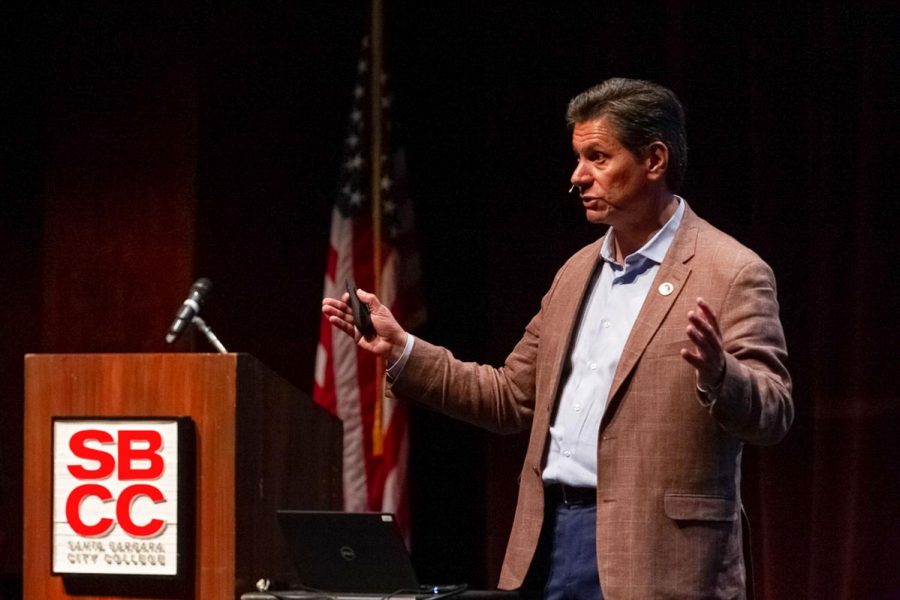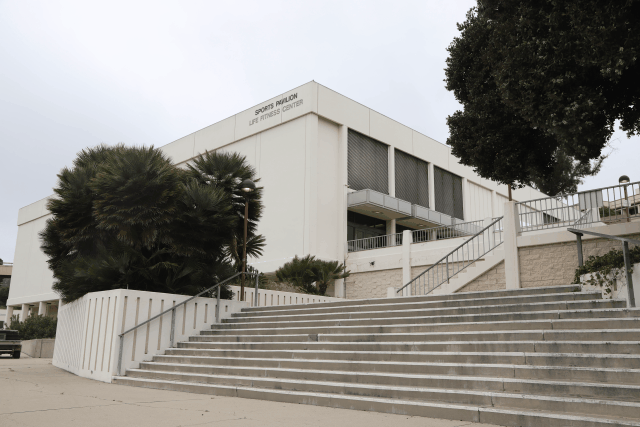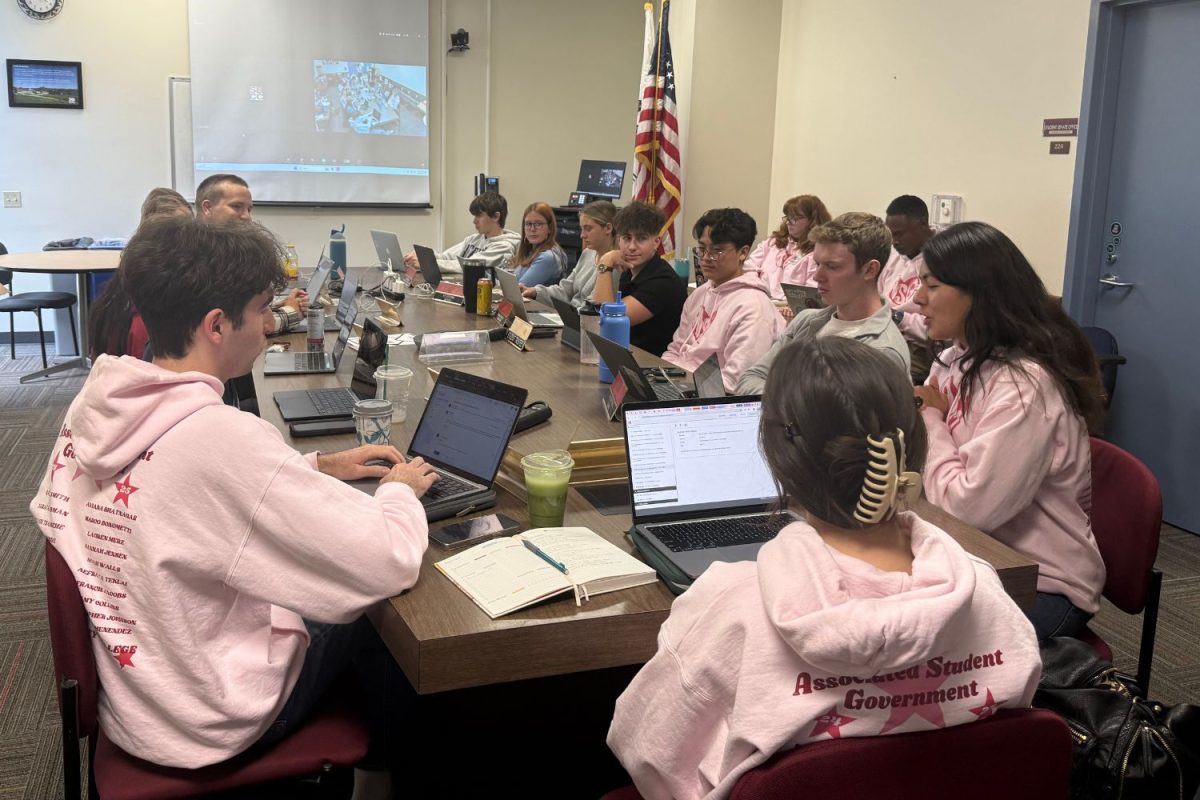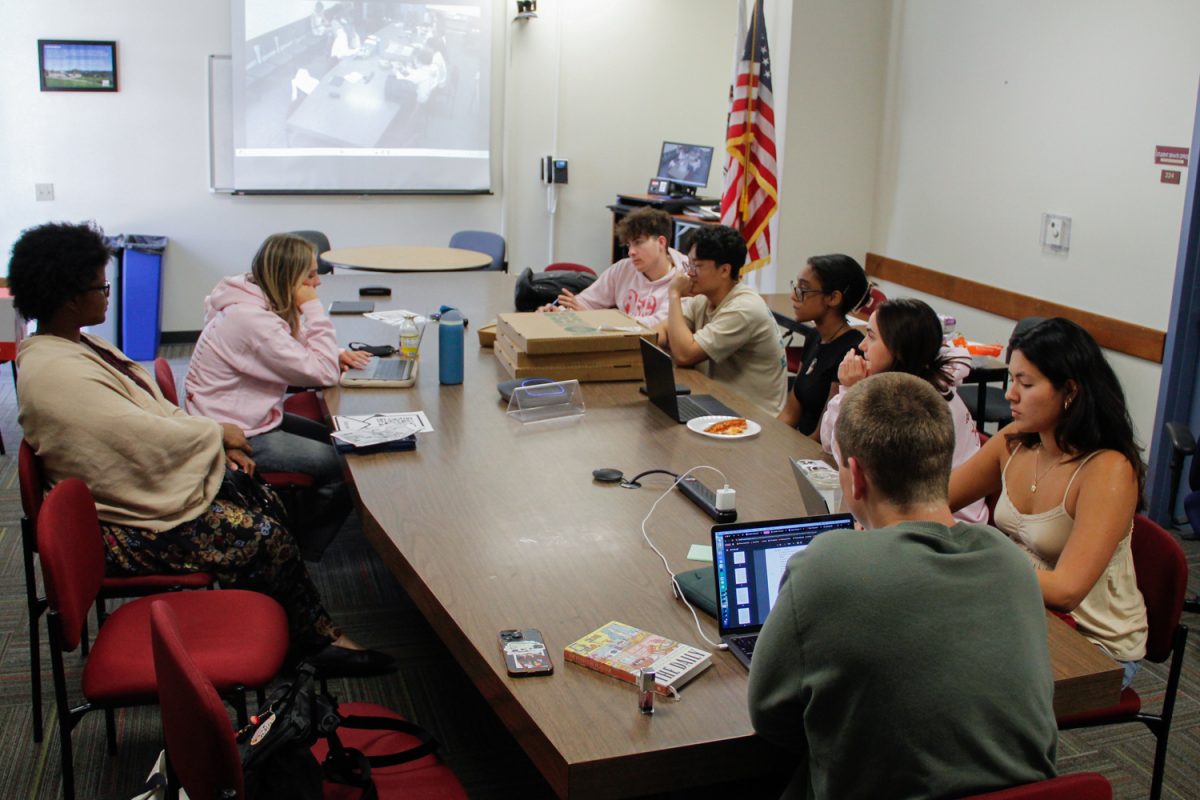California Community College State Chancellor Eloy Ortiz Oakley held a Campus Town Hall at City College Monday, where he spoke to students about how the state is working to further support their success.
Oakley gave a presentation about the Board of Governors’ Vision for Success, followed by time for community members to ask questions.
Oakley also toured the campus and met with the Board of Trustees and other college members earlier in the day.
“That’s why I’m here… because colleges like this give so much opportunity to students who may not otherwise find it in the other systems of higher education,” Oakley said of City College. “You are a community college, so you are at the epicenter of all the things that are going on in this community.”
Oakley discussed the six goals outlined in the Vision for Success and the state’s progress on those goals.
The first two goals in the Vision for Success are to increase transfer to Universities of California and California State Universities and to increase credentials obtained by students, both of which have been slowly increasing.
Another goal that has been progressing well is the aim to increase the number of students getting jobs within their field of study. The current goal is to increase that number to 79% by 2022, and the percent in 2017-2018 was 71%.
Oakley also discussed how the average number of units accumulated by students who complete degrees is about 91.5. An associate’s degree only requires 60 units to be completed, so another goal in the Vision for Success is to decrease the number of units accumulated to 79 units.
The last two goals of the Vision for Success deal with reducing equity gaps and eliminating regional gaps.
“I’m sure it comes as no surprise to you that we have some very significant equity gaps here in Santa Barbara County,” Oakley said. “Our goal is in five years to cut it by 40% and eliminate the gap within 10 years, statewide.”
Beyond these goals, Oakley said the Chancellor’s Office is working towards securing better funding for students by asking for “changes to the Cal Grant system to provide more support for low-income students to help pay for their cost of attendance.”
Oakley said they also want to increase diversity in faculty and staff.
“We fundamentally believe that it is good for all students that they be exposed to and are taught by a diverse faculty,” Oakley said. “We are asking colleges like yours to look at the diversity of its workforce, to come up with an intentional plan as how it’s going to increase diversity.”
During the question-and-answer portion of the town hall, part-time instructor Sally Saenger questioned how the Chancellor’s Office plans to further support the large part-time faculty.
“Most of our classes are taught by part-time faculty,” Saenger said. “What is the Chancellor’s Office doing to prioritize a meaningful and significant increase in funding to support our credit and non-credit part-time faculty?”
While Oakley did say part of the $16 million one-time funding from the Board of Governors Diversity, Equity and Inclusion Plan is specified for use towards supporting part-time faculty, Oakley said that, ultimately, the district decides that.
“Districts decide what to do. Districts decide where to place priority and districts need to decide how they’re going to support their part-time faculty,” Oakley said. “That’s not something the Chancellor’s Office directly engages in… those decisions are meant to be done locally.”
Faculty Association President Cornelia Alsheimer agreed that more support is needed for part-time faculty.
“You are telling the colleges what to do with the funding we are getting all the time. Whatever category it is, we are told what to do and how to spend the money,” Alsheimer said. “Just when it comes to money for part-time faculty, then suddenly it is a local decision. Then there is no extra funds you can allocate for part-time faculty… I have a little bit of a problem with that.”
Another topic brought up was how the Chancellor can support those who do anti-racism work on campus.
“I’m going to speak about it everywhere I go… My hope is that, by bringing this to every conversation on every college campus, that we give a little bit more room to faculty and staff who actually want to confront this,” Oakley said. “We all have to acknowledge that it’s not going to make it easier to confront. Racism is not something that changes overnight.”
Oakley wrapped up the town hall by presenting a certificate of recognition to Interim Superintendent-President Helen Benjamin to express gratitude for allowing him to visit City College.
“We have the great privilege of supporting communities like yours and we have to recognize that our students are going through very challenging times,” Oakley said.











![Ken Watts uses the cable chest press machine on April 9 in Santa Barbara, Calif. "[What] people value the most in personal training is accountability," Watts said.](https://www.thechannels.org/wp-content/uploads/2025/04/MGSWatts-3-1200x800.jpg)


